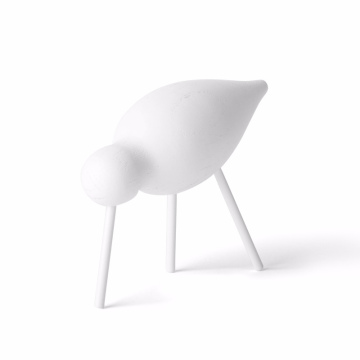Exploring Modern Japanese Culture: A Journey Through Tokyo
An Introduction to Tokyo's Modern Culture
Tokyo, the capital city of Japan, serves as a fascinating convergence point of tradition and modernity, offering a vibrant cultural landscape that is akin to a living paradox. The city's modern culture is characterized by a fast-paced lifestyle that befits its status as a global metropolis. This urban dynamism is reflected not only in its bustling streets and towering skyscrapers but also in the daily lives of its residents who embody a unique blend of contemporary attitudes interwoven with age-old customs.
One of the most remarkable features of Tokyo's modern culture is its embrace of technological advancements. As one of the world's leading technology hubs, Tokyo is home to an array of innovations that influence various aspects of daily life. From smart homes to robotics, the city continually integrates cutting-edge technology into its urban environment, significantly impacting everything from transportation to entertainment. This seamless blend of high technology with everyday life creates an environment where tradition gracefully coexists with modern convenience.
Additionally, Tokyo is a canvas for avant-garde art and fashion productions, showcasing a creative scene that draws inspiration from both local heritage and global trends. The city's streets are often described as living galleries, where fashionistas express their individuality through eclectic styles that reflect a myriad of influences. This trend is accompanied by a vibrant art scene that encompasses both established galleries and informal art spaces, promoting a culture that values creativity, experimentation, and inclusivity.
In sum, the modern culture of Tokyo is an intricate tapestry that combines the old with the new, making it a captivating destination for both locals and visitors. The continuous evolution of this culture, marked by a relentless pursuit of innovation and a deep respect for tradition, sets the stage for a rich exploration of Tokyo's diverse cultural aspects throughout this blog post.
Must-Visit Districts: Where Tradition Meets Innovation
Tokyo, a vibrant metropolis where the past and present intertwine, features distinct districts that reflect the essence of modern Japanese culture. Among these, Harajuku, Akihabara, and Shibuya stand out as iconic neighborhoods, each offering a unique perspective on urban life in Japan.
Harajuku is renowned for its unparalleled fashion scene that attracts both locals and tourists alike. The streets of Harajuku burst with youthful energy, showcasing a blend of avant-garde styles and traditional influences. This district is home to the famed Takeshita Street, lined with eclectic boutiques and quirky shops that cater to various subcultures. Visitors can immerse themselves in not just the latest trends but also discover how elements of traditional Japanese attire, such as kimonos and yukatas, are creatively incorporated into contemporary fashion. The district serves as a canvas for self-expression and creativity, demonstrating how modern Japanese culture embraces diversity while respecting its heritage.
In stark contrast, Akihabara presents a tech-savvy haven where innovation reigns supreme. Revered as the epicenter of otaku culture, it encapsulates the appeal of Japan's burgeoning entertainment industry. From the latest video games to anime merchandise, Akihabara is a treasure trove for enthusiasts. The district’s high-tech shops are lined with cutting-edge gadgets, appealing to those fascinated by gaming and technology. Yet, amidst the neon lights and towering displays, one can find traces of tradition, as the area occasionally hosts themed cafes and establishments that evoke nostalgia for classic Japanese culture.
Lastly, Shibuya stands as a bustling crossroads of urban life, epitomized by the iconic Shibuya Crossing, where thousands of pedestrians navigate the intersection daily. This dynamic district perfectly captures Tokyo's fast-paced lifestyle, featuring a blend of contemporary architecture and traditional details. Shibuya is also known for its vibrant nightlife, shopping venues, and entertainment options, highlighting the seamless integration between the rapidly evolving cityscape and its historical roots. The coexistence of these elements creates an intriguing atmosphere, making it a must-visit destination for anyone exploring modern Japanese culture.
Culinary Adventures: Tasting Tokyo's Modern Delicacies
The culinary landscape of Tokyo is an ever-evolving tapestry that beautifully melds traditional Japanese cuisine with global influences. This integration of diverse flavors and cooking techniques has given rise to a unique dining experience that is both innovative and deeply rooted in cultural heritage. Tokyo’s modern cuisine showcases a rich array of dining options, from street food stands brimming with tantalizing flavors to high-end restaurants offering exquisite tasting menus.
Street food remains a fundamental aspect of Tokyo's culinary scene, providing an accessible introduction to local flavors. Vendors sell delights such as yakitori—grilled chicken skewers seasoned to perfection—and takoyaki, a savory ball filled with octopus. These dishes capture the essence of Japanese cooking while accommodating influences from various international cuisines, reflecting the city's dynamic food culture.
In contrast to the casual street fare, Tokyo also boasts a plethora of fine dining establishments that have earned Michelin stars for their meticulous presentation and exceptional taste. Here, chefs often employ innovative techniques, such as molecular gastronomy, to elevate traditional dishes into modern masterpieces. The emphasis on seasonal ingredients guarantees that each meal serves as both a culinary journey and a celebration of Japan's commitment to freshness.
Themed restaurants have also surged in popularity, offering unique dining experiences that engage patrons beyond the palate. From animal cafes to establishments that recreate fantastical worlds, these venues are as much about atmosphere and entertainment as they are about food. This trend indicates a diversified approach to dining, where guests seek not just a meal, but a memorable experience.
Furthermore, Tokyo’s culinary scene is witnessing a growing emphasis on health-conscious and sustainable eating. Many restaurants are now featuring organic ingredients and vegetarian options, promoting wellness without sacrificing flavor. Food festivals and pop-up cafes dedicated to these innovative dining trends serve as reflections of Tokyo's cultural shifts, signaling a collective movement towards mindful consumption and deeper connections with food.
Art and Entertainment: The Soul of Contemporary Tokyo
Tokyo stands as a vibrant hub for art and entertainment, reflecting a contemporary culture deeply intertwined with tradition and innovation. The city's art scene encompasses a plethora of contemporary art galleries and installations that serve as a canvas for local and international artists alike. Notable galleries, such as the Mori Art Museum and the National Art Center, are distinguished for their cutting-edge exhibitions that often integrate technology, thereby enhancing the viewer's experience and redefining the boundaries of contemporary art.
The influence of technology on art forms is particularly pronounced in Tokyo. Artists leverage digital media, virtual reality, and interactive installations to create immersive experiences. This innovative approach has paved the way for events like the annual Digital Art Festival, where creativity meets advanced technology, emphasizing the role of digital art in modern expression.
Beyond the galleries, Tokyo's entertainment landscape is dominated by the iconic realms of anime, manga, and J-pop. These elements of pop culture are not only central to the city's identity but have also garnered a massive global following, showcasing Japan's ability to influence worldwide trends. Events such as Anime Expo and the Tokyo Anime Award Festival draw enthusiasts from around the globe, further solidifying the city's status as a cultural epicenter.
The local artist community plays a pivotal role in shaping these cultural narratives. By blending traditional Japanese aesthetics with contemporary themes, artists are crafting a unique identity that resonates with both domestic and international audiences. The importance of venues such as Shimokitazawa and Koenji cannot be overstated, as they serve as incubators for creative expression, hosting live performances, art shows, and festivals year-round.
Tokyo’s exhilarating blend of art, technology, and performance not only highlights its inventive spirit but also underlines the city's commitment to fostering a cultural landscape that is both dynamic and inclusive. This vibrancy ensures that Tokyo remains at the forefront of contemporary art and entertainment, continually captivating those who explore its culturally rich offerings.





